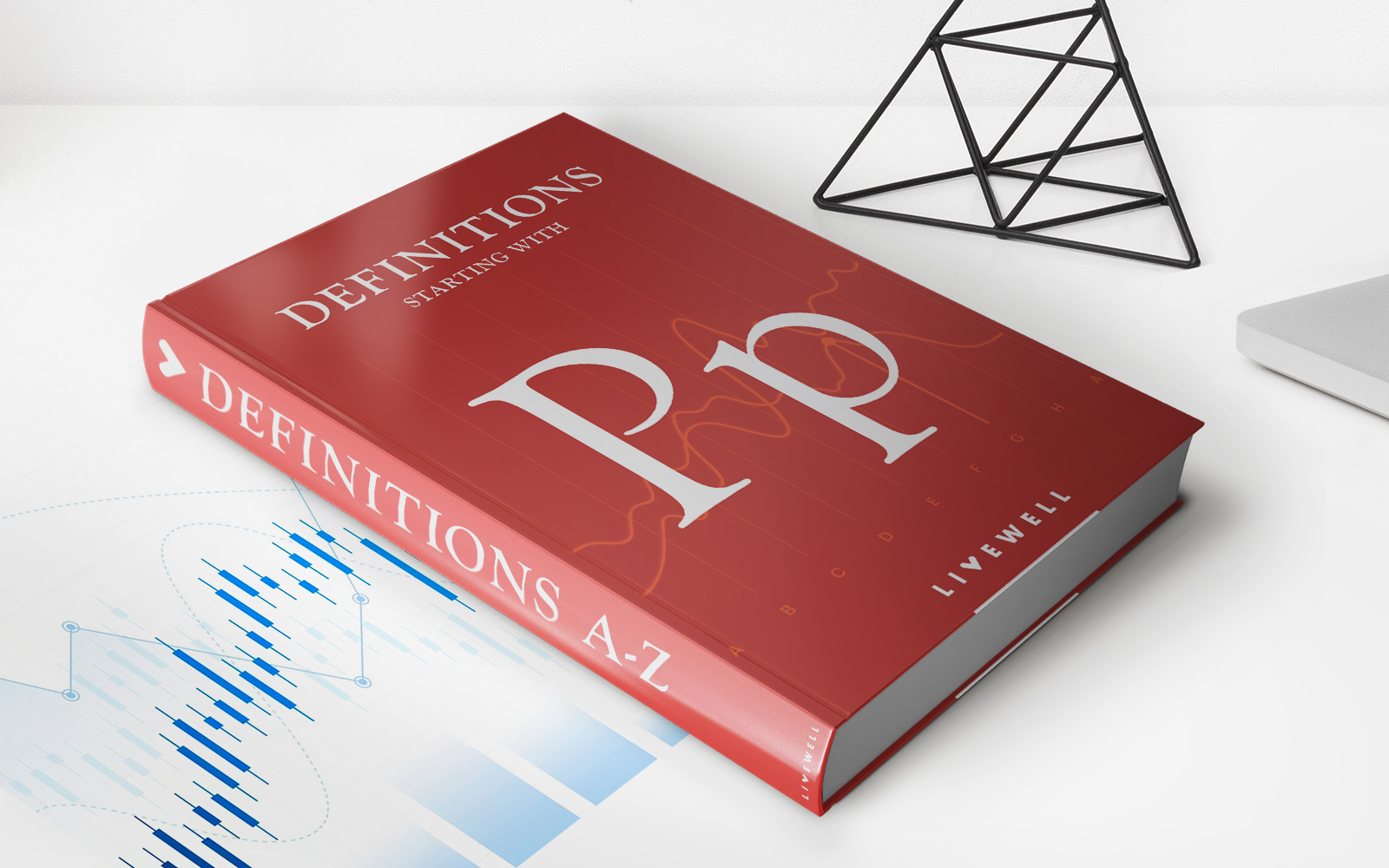

Finance
How Much Money Do Insurance Adjusters Make?
Modified: December 30, 2023
Find out how much money insurance adjusters make in the finance industry. Discover the average salaries and earning potential in this lucrative career.
(Many of the links in this article redirect to a specific reviewed product. Your purchase of these products through affiliate links helps to generate commission for LiveWell, at no extra cost. Learn more)
Table of Contents
- Introduction
- Role of Insurance Adjusters
- Factors Affecting Insurance Adjuster Salary
- Average Salary of Insurance Adjusters
- Salary Range for Insurance Adjusters
- Highest Paying Industries for Insurance Adjusters
- Factors That Influence Salary Variations Among Insurance Adjusters
- Job Outlook for Insurance Adjusters
- Conclusion
Introduction
Insurance adjusters play a critical role in the insurance industry, evaluating and assessing claims to ensure that policyholders receive fair compensation for their losses. They are responsible for investigating accidents, assessing damages, and negotiating settlement amounts. If you’re considering a career as an insurance adjuster, one question that may be on your mind is, “How much money do insurance adjusters make?”
The salary of an insurance adjuster can vary depending on various factors, such as experience, qualifications, location, and the type of insurance they specialize in. In this article, we will explore these factors and provide insights into the average salary range for insurance adjusters, the highest paying industries, and other influential factors that can affect their earnings.
Understanding the salary potential of insurance adjusters is essential for individuals looking to enter the field or those who are already working as adjusters and want to assess their earning potential. So, let’s dive into the details and find out how much money insurance adjusters make.
Role of Insurance Adjusters
Insurance adjusters play a crucial role in the insurance industry, acting as the liaison between policyholders and insurance companies. Their primary responsibility is to assess and investigate insurance claims to determine the amount of compensation that should be provided to policyholders.
When an insurance claim is filed, an adjuster is assigned to the case. They will then conduct a thorough investigation to gather all necessary information, including interviewing the policyholder, witnesses, and experts, inspecting damaged property, and reviewing medical records or police reports. This information is vital in determining the validity of the claim and assessing the extent of the damages.
Once the investigation is complete, insurance adjusters use their expertise to analyze the policy terms and conditions, evaluate the evidence collected, and determine the appropriate settlement amount. This requires a deep understanding of insurance policies, laws, and regulations, as well as strong negotiation skills.
The role of an insurance adjuster goes beyond assessing claims. They also play a vital role in managing the claims process, ensuring that all necessary documentation is provided, and guiding policyholders through the process. They must effectively communicate with policyholders, insurance agents, and other parties involved to provide updates, answer questions, and address any concerns.
In addition to handling individual claims, insurance adjusters may also be responsible for investigating large-scale accidents or disasters that involve multiple policyholders. They work closely with other professionals, such as engineers, medical professionals, and legal experts, to ensure a comprehensive assessment of the damages and a fair resolution for policyholders.
Overall, insurance adjusters play a critical role in the insurance industry, ensuring that policyholders receive the appropriate compensation for their losses while upholding the principles of fairness and integrity.
Factors Affecting Insurance Adjuster Salary
The salary of an insurance adjuster can vary significantly based on several key factors. Understanding these factors is essential for individuals considering a career in this field and for those hoping to maximize their earning potential. Here are some of the main factors that can influence the salary of insurance adjusters:
- Experience: Like many professions, experience plays a significant role in determining salary. Insurance adjusters with years of experience are often able to command higher salaries due to their proven expertise and track record of handling complex claims.
- Qualifications and Education: Insurance adjusters who hold advanced degrees or professional certifications, such as the Associate in Claims (AIC) or Chartered Property Casualty Underwriter (CPCU) designations, may receive higher compensation. These qualifications demonstrate a higher level of knowledge and expertise in the field.
- Location: The geographical location where an insurance adjuster works can have a significant impact on their salary. In areas with a higher cost of living or a higher demand for adjusters, salaries may be higher to attract and retain talent. Metropolitan areas and regions prone to weather-related disasters may offer higher paying opportunities.
- Type of Insurance: The type of insurance an adjuster specializes in can also affect their salary. Adjusters who work in more complex and high-value insurance fields, such as commercial property or medical malpractice, may receive higher compensation compared to those working in auto or home insurance.
- Company Size: The size and reputation of the insurance company can impact salary. Larger companies may offer higher salaries and additional benefits, while smaller companies may offer more personalized work environments but with potentially lower salaries.
- Performance and Metrics: Some insurance companies utilize performance-based pay structures, where adjusters are incentivized based on specific metrics, such as claim closure ratios or customer satisfaction ratings. High-performing adjusters who consistently meet or exceed performance goals may receive bonuses or higher salaries.
- Negotiation Skills: An adjuster’s ability to negotiate effectively can also impact their salary. Skilled negotiators who can secure higher settlements for their clients are often rewarded with higher compensation or bonuses.
It’s important to note that while these factors can influence an insurance adjuster’s salary, they are not the sole determinants. Each adjuster’s specific circumstances and the overall market conditions will also play a role in salary negotiations.
Average Salary of Insurance Adjusters
The average salary of insurance adjusters can vary based on several factors, including experience, qualifications, and location. According to the Bureau of Labor Statistics (BLS), as of May 2020, the median annual wage for insurance adjusters, examiners, and investigators was $68,790.
It’s important to note that this figure represents the median, meaning that half of all adjusters earn less than this amount, and half earn more. Adjusters with less experience or working in lower-paying regions may earn salaries below the median, while those with more experience or working in higher-paying areas have the potential to earn above the median.
Additionally, the BLS data indicates that the lowest 10% of adjusters earned less than $43,170, while the highest 10% earned more than $102,820. This wide range reflects the influence of various factors, such as location, industry specialization, and level of expertise.
Insurance adjusters who work in metropolitan areas or regions with a higher demand for their services tend to earn higher salaries. For example, adjusters in cities such as San Francisco, New York, or Los Angeles often command higher salaries due to the higher cost of living and increased workload.
The type of insurance that adjusters specialize in can also impact their salary. Adjusters who focus on complex commercial property claims or specialized areas like medical malpractice may receive higher compensation compared to adjusters who handle more routine auto or homeowner’s insurance claims.
Furthermore, adjusters with additional qualifications or advanced degrees, such as the Associate in Claims (AIC) or Chartered Property Casualty Underwriter (CPCU) designations, may earn higher salaries. These certifications demonstrate a higher level of expertise and can enhance an adjuster’s earning potential.
Overall, while the average salary for insurance adjusters is around $68,790, it’s essential to consider the various factors that can influence earnings and determine the specific salary potential in different locations and industries.
Salary Range for Insurance Adjusters
The salary range for insurance adjusters can vary significantly due to factors such as experience, qualifications, geographic location, industry specialization, and company size. While the average salary provides a benchmark, it’s important to understand the broader salary range to gain a better perspective on earning potential in this field.
According to the Bureau of Labor Statistics (BLS), as of May 2020, the lowest 10% of insurance adjusters earned less than $43,170 per year, while the highest 10% earned more than $102,820. This wide range reflects the varying levels of experience, expertise, and market demand across different locations and sectors of the insurance industry.
Entry-level insurance adjusters or those with less experience may start at the lower end of the salary range, typically earning around $40,000 to $50,000 per year. As they gain more experience and handle more complex claims, their salaries can increase to the range of $60,000 to $80,000 per year.
Mid-level adjusters with several years of experience may earn salaries ranging from $70,000 to $90,000 per year. These adjusters often handle a higher volume of claims or specialize in more complex areas such as commercial property or professional liability insurance.
Senior-level adjusters who have built a reputation for their expertise and have extensive experience in the industry can command higher salaries. Their earnings may range from $90,000 to $120,000 per year or even higher.
It’s important to note that the salary range can also be influenced by geographic location. In areas with a higher cost of living or a greater demand for adjusters, salaries may be on the higher end of the range. Metropolitan areas and regions prone to natural disasters may offer higher-paying opportunities due to the increased workload and specialized expertise required.
Furthermore, insurance adjusters who work in specific industries or niches, such as medical malpractice or catastrophic claims, may have the potential to earn higher salaries due to the complexity and higher values involved in these types of claims.
Lastly, the size and reputation of the insurance company can also impact salary ranges. Larger companies may offer higher salaries and additional benefits, while smaller companies may offer a more personalized work environment but potentially with lower salaries.
It’s important to remember that these salary ranges are general estimates, and individual adjusters’ earnings can vary based on their unique circumstances and skills. Continuous education, certifications, and demonstrated expertise can also lead to higher earnings in this field.
Highest Paying Industries for Insurance Adjusters
The salary potential for insurance adjusters can vary depending on the industry they work in. Some industries offer higher compensation due to the complexity and value of the insurance claims they handle. Here are some of the highest paying industries for insurance adjusters:
- Professional, Scientific, and Technical Services: Adjusters working in this industry often handle specialized claims, such as professional liability or engineering-related insurance. The intricate nature of these claims, coupled with the higher stakes involved, can result in higher compensation for adjusters.
- Finance and Insurance: This industry encompasses a wide range of insurance types, including property, casualty, and life insurance. Adjusters in finance and insurance may have the opportunity to handle more complex claims, resulting in higher salaries.
- Wholesale Trade: The wholesale trade industry involves the distribution of goods on a large scale. Insurance adjusters in this industry may specialize in claims related to the loss or damage of inventory, requiring a high level of expertise and knowledge. This specialization can lead to higher salaries.
- Management of Companies and Enterprises: Adjusters working in the management of companies and enterprises industry often handle claims for large corporations or conglomerates. These claims can often be complex and involve higher values, resulting in higher compensation for adjusters.
- Manufacturing: The manufacturing industry covers a wide range of sectors, from automotive to pharmaceuticals. Adjusters in this industry may handle claims related to product liability or property damage, requiring detailed investigations and evaluations. The higher complexity and value involved in manufacturing-related claims can result in higher salaries.
- Legal Services: Insurance adjusters who work in the legal services industry may handle claims related to litigation or legal disputes. These claims often require extensive knowledge of insurance laws and regulations, as well as strong negotiation skills. Adjusters in this industry may earn higher compensation due to the legal complexities involved.
It’s important to note that the highest paying industries for insurance adjusters may vary based on factors such as geographic location and market demand. Additionally, specialized industries, such as marine or aviation insurance, may offer higher compensation due to the unique risks and complexities associated with these types of insurance.
Overall, adjusters who work in industries that involve complex claims, higher values, or specialized knowledge have the potential to earn higher salaries compared to those in other industries. It’s important for insurance adjusters to explore these industries and assess their own skills and interests to determine which industry aligns best with their career goals and salary expectations.
Factors That Influence Salary Variations Among Insurance Adjusters
While the average salary of insurance adjusters provides a baseline, there are several factors that contribute to salary variations within the profession. Understanding these factors is crucial for insurance adjusters who wish to maximize their earning potential. Here are some of the key factors that influence salary variations among insurance adjusters:
- Experience and Expertise: The level of experience and expertise an insurance adjuster possesses can greatly impact their salary. Adjusters with more years of experience and a proven track record of handling complex claims or specialized areas may command higher salaries compared to those who are just starting their careers.
- Geographic Location: The geographic location where an insurance adjuster works can significantly affect their salary. Adjusters in metropolitan areas or regions with a higher cost of living may earn higher salaries to compensate for the higher expenses. Moreover, adjusters in areas prone to natural disasters or with a high demand for their services may also earn higher salaries due to the specialized skills required.
- Type of Insurance: The type of insurance an adjuster specializes in can influence their salary. Adjusters who work in niche areas such as medical malpractice or commercial property insurance may earn higher salaries compared to those who handle more common types of claims like auto or home insurance.
- Company Size and Reputation: The size and reputation of the insurance company an adjuster works for can impact their salary. Larger and more established companies may offer higher salaries and additional benefits to attract and retain top talent. On the other hand, smaller companies may offer a more personalized work environment but with potentially lower salaries.
- Professional Certifications: Holding professional certifications, such as the Associate in Claims (AIC) or Chartered Property Casualty Underwriter (CPCU) designations, can increase an adjuster’s earning potential. These certifications demonstrate a higher level of knowledge and expertise in the field, which can lead to higher salaries or opportunities for advancement.
- Performance and Metrics: Some insurance companies have performance-based pay structures, where adjusters are incentivized based on specific metrics such as claim closure ratios, customer satisfaction ratings, or revenue generated. Adjusters who consistently meet or exceed performance goals may receive higher salaries or bonuses.
It’s important for insurance adjusters to consider these factors and their own unique circumstances when negotiating salaries or seeking employment opportunities. Additionally, continuing education, staying updated with industry trends, and networking can also positively influence salary variations among insurance adjusters.
Job Outlook for Insurance Adjusters
The job outlook for insurance adjusters is influenced by several factors, including industry trends, technological advancements, and economic conditions. While the specific job outlook can vary based on geographic location and specialization, here is an overview of the overall job outlook for insurance adjusters:
Growth Opportunities: The employment of insurance adjusters is projected to experience a stable growth rate in the coming years. As the population grows and insurance claims continue to arise, the demand for skilled adjusters will remain constant. Additionally, advancements in technology and automation in the industry may lead to a shift in job responsibilities, with adjusters focusing more on complex or high-value claims.
Industry Changes: The insurance industry itself is evolving, which can impact the job outlook for adjusters. Changes in regulations, emerging risks, and evolving insurance products may require adjusters to adapt their skills and knowledge. Adjusters who can stay up-to-date with industry trends and acquire specialized expertise in emerging areas, such as cyber insurance or climate-related claims, may find increased job opportunities and higher earning potential.
Technology and Automation: The advancement of technology, such as artificial intelligence and predictive analytics, has the potential to streamline certain aspects of the claims process. While automation may reduce the need for adjusters in more routine or standardized claims, it also presents new opportunities. Adjusters who can leverage technology and focus on complex claims that require critical thinking, negotiation skills, and human judgment are likely to remain in demand.
Retirement and Industry Growth: As the insurance industry continues to grow, retirements of experienced adjusters are expected to create job openings for new professionals. This can provide opportunities for entry-level adjusters or those looking to advance their careers. Moreover, the increasing complexity of insurance claims, particularly in specialized areas, may lead to a higher demand for experienced adjusters who can navigate complex policy provisions and accurately assess damages.
Customer Service Focus: The role of the insurance adjuster is increasingly shifting towards providing exceptional customer service. As consumers seek more personalized and efficient claims experiences, adjusters who can effectively communicate with policyholders, exhibit empathy, and offer timely resolutions will be highly sought after. Adjusters who can combine their technical expertise with excellent customer service skills will have a competitive edge in the job market.
Overall, the job outlook for insurance adjusters remains positive, with stable employment opportunities. By staying updated with industry trends, expanding their skill sets, and embracing technological advancements, adjusters can position themselves for success in this evolving field.
Conclusion
As you can see, the salary potential for insurance adjusters can vary based on several factors, including experience, qualifications, location, industry specialization, and company size. Despite variations in salary, the insurance industry offers stable employment opportunities for adjusters due to ongoing insurance claims and the need for skilled professionals.
Factors such as experience, qualifications, and specialization play a significant role in determining an adjuster’s salary. Those with more experience, advanced degrees, or specialized certifications have the potential to earn higher salaries. Geographic location also impacts salary ranges, with higher costs of living and increased demand for adjusters in certain areas leading to higher compensation.
Industries such as professional services, finance and insurance, and wholesale trade tend to offer higher-paying opportunities for adjusters. These industries often involve complex claims or higher values, which require specialized knowledge and expertise.
Insurance adjusters should also consider factors like company size, performance metrics, and the role of technology in the industry. While automation may streamline certain aspects of the claims process, adjusters who can adapt, develop strong negotiation skills, and provide exceptional customer service will remain valuable.
In conclusion, the salary potential and job outlook for insurance adjusters depend on a combination of personal factors and industry trends. By continually developing their expertise, staying up-to-date with industry advancements, and cultivating strong negotiation and customer service skills, insurance adjusters can enhance their earning potential and thrive in this rewarding profession.














